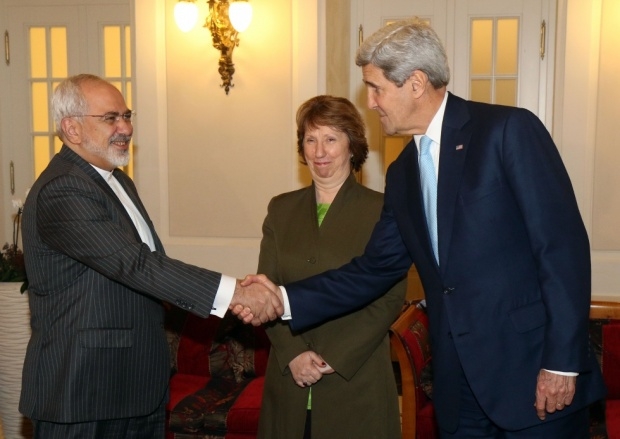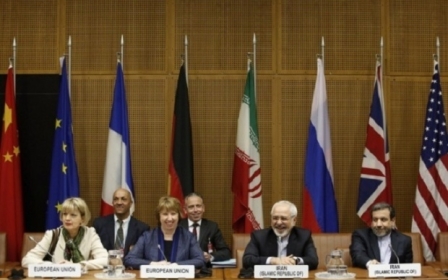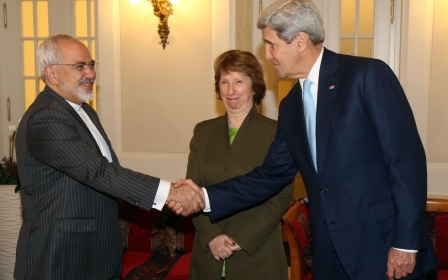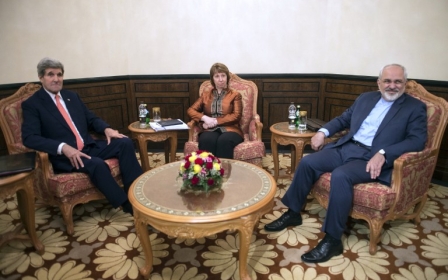Implications of an Iran nuclear deal

As the Iran nuclear talks in Vienna approach another deadline, it is worth considering the implications of a potential deal for the United States, Iran, and Israel. Each has a different set of outcomes it would like to see achieved in the talks. On balance, the US and Iran have the most to gain, but as we will see, Israel also has much to gain. The problem is that the Israeli government has painted itself into a corner and seems determined to spoil a potential deal.
Since late 2011, the US has shown an interest in rebalancing its foreign policy through a “strategic pivot” toward Asia. To achieve this, the Obama administration has tried to disengage itself from the region and return the US to its traditional place of acting as an offshore balancer.
This strategy has been evident in President Obama’s reluctance to involve America in the Syrian civil war, the limited US involvement in the Libyan Civil War, and Secretary of State John Kerry’s intensive and unsuccessful efforts to secure an agreement between Israel and the Palestinians in 2013-14. The reality is that if the US could somehow extricate itself from these intractable conflicts, it could then refocus its energies in Asia.
Trita Parsi, president of the National Iranian-American Council and author of Treacherous Alliance: The Secret Dealings of Israel, Iran, and the United States, said in an interview that to achieve a strategic pivot toward Asia, the Obama administration first needs to develop a functioning relationship with Iran: “Many of the problems in the region have become all the more difficult to resolve as a result of the US and Iran not being able to talk to each other.”
Resolving the Iranian nuclear question aligns perfectly with America’s strategic objectives for the region, which include preventing the dominance of a single state, keeping oil flowing through the Strait of Hormuz and on to global markets, and limiting its military presence in the region while ensuring the safety of its allies in the region, particularly Israel.
According to a forthcoming strategic report from LSE IDEAS at the London School of Economics, a nuclear deal will reduce the likelihood of an Israeli military strike against Iran; bring Iranian oil back into the global oil supply; and stave off a potential nuclear arms race between Iran and Saudi Arabia.
More importantly, it could lead to cooperation on important regional issues, such as containing the rise of the Islamic State, stabilizing the civil war in Syria, reigning in terrorism in Pakistan, preventing a Taliban victory in Afghanistan, and countering the region’s heroin trade.
There is already evidence of the US showing interest in cooperating with Iran on dealing with the IS threat in Iraq, so it is not unreasonable to believe that a nuclear deal could lead to cooperation on other areas of common interest.
Despite these considerable benefits, pro-Israel members of the US Congress stand out as potential spoilers of an agreement.
The Iranian government also stands to gain considerably from a nuclear deal. After years of crippling sanctions that have left its economy devastated and made it a pariah state, Iran desperately needs relief from the sanctions and investment in its economy, especially in its struggling oil industry. The real challenge here will be devising a deal that can be sold to the Iranian public as a victory.
One obstacle at this stage is the matter of perceptions. “All Iranians see Iran as a great power,” observed Gary Sick, an Iran expert at Columbia University who served on the US National Security Council staff during the Iranian Revolution. Like many Americans, Iranians see their country as an indispensable, “exceptional state”. To them, “everything [in the world] revolves around them”.
Unfortunately, for Iran to achieve this status, it will have to first rid itself of the nuclear issue. In reality, the driving force behind Iran’s nuclear diplomacy “is to sort the economy out and ... get the sanctions lifted,” says Ali Ansari, a leading Iran expert at the University of St. Andrews.
Should the P5+1 (the UN Security Council permanent five members plus Germany) and Iran reach an agreement, a likely outcome, according to Parsi, is that “Iran will break out of its isolation and … be increasingly treated as a regional player, because discussions between the United States and Iran will have been normalized.”
Beyond this, Iran stands to benefit from a reduction of tension across the board, and not just with the United States, but with the European Union and the Gulf States. At the same time, the lifting of sanctions would lead to Iran’s reintegration into the international economy; Western investment will help restore its struggling oil industry; and it could result in a greater role in ensuring the security of the region, particularly with respect to dealing with the crisis in Iraq and Syria, provided the Saudis acquiesce.
All of these outcomes not only benefit Iran but will also help stabilize the region and bridge the Sunni-Shia divide.
However, as Parsi pointed out, simply lifting the sanctions will not solve all Iran’s woes. “Even though sanctions will be lifted,” he observed. “The fundamental problem with the Iranian economy is mismanagement and corruption, and that will not go away.”
There is also no guarantee that a nuclear deal will be reached. Dennis Ross, who served as President Obama’s point man on Iran during his first term, raises a good question earlier this summer: “Even if President Hassan Rouhani and Mohammad Javad Zarif, his foreign minister, are ready to accept such a deal - and it is not clear that they [will] - can they sell this to the Supreme Leader?” In the end, how to achieve this will depend entirely on the final nature of a deal.
For the Israelis, the implications of a nuclear deal could really go both ways. Parsi believes that while a nuclear deal is not likely to be good politically for the Netanyahu government, Israel could actually emerge as a big winner.
“If [Israel] truly believes that Iran’s nuclear capability is a problem, [a] deal [that] makes sure Iran cannot build a weapon without getting caught is a significant enhancement of Israel’s security.” However, for Israel to capitalize on the benefits of a nuclear deal, Parsi believes, “[there] will need to be some form of a shakeup in Israel because the Netanyahu government has taken Israel down a path and painted Israel into a corner at a time when Israel needs to be flexible and agile strategically, and it currently isn’t.”
The reality is that any reduction of the threat of an Iranian nuclear weapon corresponds to an improvement in Israel’s security.
There is not, however, a consensus on this matter. The Israelis view a nuclear deal with the Iranians as a delaying mechanism designed to allow Iran to gather strength and move closer to a nuclear threshold capability, says Amnon Aran, an Israeli specialist at City University London.
Dennis Ross took this concern a step further: “The worry is that we will conclude a deal that leaves the Iranians as a threshold nuclear state - capable of breaking out to nuclear weapons at a time when we might be distracted by another international crisis.”
He added: “For the Israelis, their priority is the Iranian nuclear program. That constitutes an existential threat. Iran and its proxies like Hezbollah constitute a threat, but, in Israeli eyes, that is manageable. Iran possessing nuclear weapons is not manageable or containable.”
It is clear that a nuclear deal is in the interests of the US, Iran and Israel. While the US and Iran stand to gain the most from an agreement, the reduction of a nuclear threat will benefit Israel. However, the Netanyahu government and his allies in Congress do not view the matter this way and will try to undermine whatever deal is struck.
In the end, how Netanyahu and Congress respond to a deal will largely determine whether America’s already tense relationship with Israel will improve or deteriorate further. The ball is in Netanyahu’s court.
-Bryan R Gibson recently completed a PhDin International History at the London School of Economics and is the author of Covert Relationship: American Foreign Policy, Intelligence and the Iran-Iraq War, 1980-1988 (Praeger, 2010).
The views expressed in this article belong to the author and do not necessarily reflect the editorial policy of Middle East Eye.
Photo: Iranian Foreign Minister Mohammad Javad Zarif (L), US Secretary of State John Kerry (R) and former EU Foreign Policy Chief Catherine Ashton (C) in Vienna on 20 November, 2014 (AFP).
Stay informed with MEE's newsletters
Sign up to get the latest alerts, insights and analysis, starting with Turkey Unpacked
Middle East Eye delivers independent and unrivalled coverage and analysis of the Middle East, North Africa and beyond. To learn more about republishing this content and the associated fees, please fill out this form. More about MEE can be found here.





